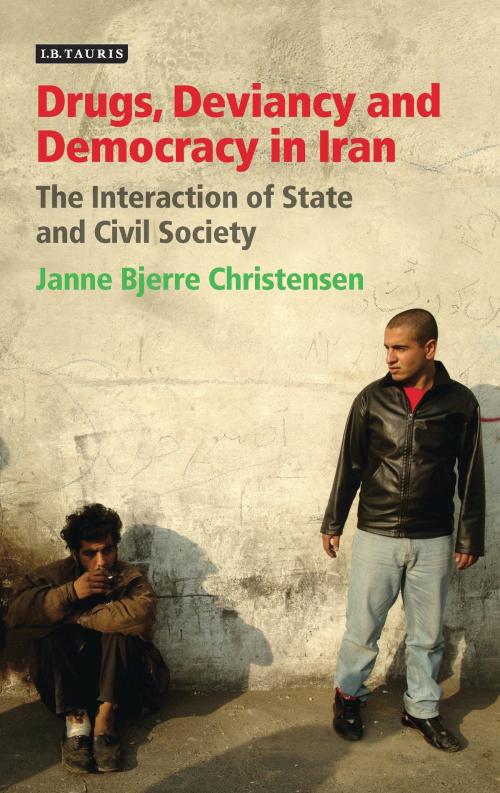Drugs, Deviancy and Democracy in Iran
The Interaction of State and Civil Society
Nonfiction, Social & Cultural Studies, Social Science, Crimes & Criminals, Criminology, Anthropology| Author: | Janne Bjerre Christensen | ISBN: | 9780857732095 |
| Publisher: | Bloomsbury Publishing | Publication: | September 30, 2011 |
| Imprint: | I.B. Tauris | Language: | English |
| Author: | Janne Bjerre Christensen |
| ISBN: | 9780857732095 |
| Publisher: | Bloomsbury Publishing |
| Publication: | September 30, 2011 |
| Imprint: | I.B. Tauris |
| Language: | English |
In the aftermath of the Iranian Revolution, the government initiated a stringent anti-drug campaign that included fining addicts, imprisonment, physical punishment and even the death penalty. Despite these measures, drug use was and is still commonplace. Based on her most recent fieldwork in Iran, Janne Bjerre Christensen highlights the mounting problems of drug use, how treatment became legalized in 1998, and how local NGOs have become involved in the treatment of drug addicts, and indeed, face continues political challenges in doing so.
Drugs, Deviancy and Democracy explores how treatment is carried out among homeless drug users in South Tehran, in a private clinic and in the work of Narcotics Anonymous. By attempting to socially include and 'normalize' drug users, these local organisations balance on the margins of state permissiveness and control, constantly navigating the relations between state and non-state, normalcy and deviancy. Although treatment is allowed, state responses to both drug users and NGOs remain deeply contradictory, reflecting the competing ideals of Islamic governance prevailing since the revolution.
It is through an analysis of the emergence of local NGOs, their work, the challenges that they face, and the ways in which both them and the drug users are discussed in Iranian society, media and cinema, that Christensen examines the very nature of power and its loci in Iran. She thus uncovers the precarious relationship between state and society, and points to the subtle, detailed and contradictory ways in which 'reform' is born, manifested and reformulated. Her conclusions thereby hold wider implications for understanding the political mobilization in Iran and the state's reaction to it as the Islamic Republic reaches its fourth decade.
This book is thus a unique account of Iran's recent social and political history, drawing important conclusions about the complexity of state power, and the growing impact of civil society, vital for all those interested in Iran's history, politics and society.
In the aftermath of the Iranian Revolution, the government initiated a stringent anti-drug campaign that included fining addicts, imprisonment, physical punishment and even the death penalty. Despite these measures, drug use was and is still commonplace. Based on her most recent fieldwork in Iran, Janne Bjerre Christensen highlights the mounting problems of drug use, how treatment became legalized in 1998, and how local NGOs have become involved in the treatment of drug addicts, and indeed, face continues political challenges in doing so.
Drugs, Deviancy and Democracy explores how treatment is carried out among homeless drug users in South Tehran, in a private clinic and in the work of Narcotics Anonymous. By attempting to socially include and 'normalize' drug users, these local organisations balance on the margins of state permissiveness and control, constantly navigating the relations between state and non-state, normalcy and deviancy. Although treatment is allowed, state responses to both drug users and NGOs remain deeply contradictory, reflecting the competing ideals of Islamic governance prevailing since the revolution.
It is through an analysis of the emergence of local NGOs, their work, the challenges that they face, and the ways in which both them and the drug users are discussed in Iranian society, media and cinema, that Christensen examines the very nature of power and its loci in Iran. She thus uncovers the precarious relationship between state and society, and points to the subtle, detailed and contradictory ways in which 'reform' is born, manifested and reformulated. Her conclusions thereby hold wider implications for understanding the political mobilization in Iran and the state's reaction to it as the Islamic Republic reaches its fourth decade.
This book is thus a unique account of Iran's recent social and political history, drawing important conclusions about the complexity of state power, and the growing impact of civil society, vital for all those interested in Iran's history, politics and society.















